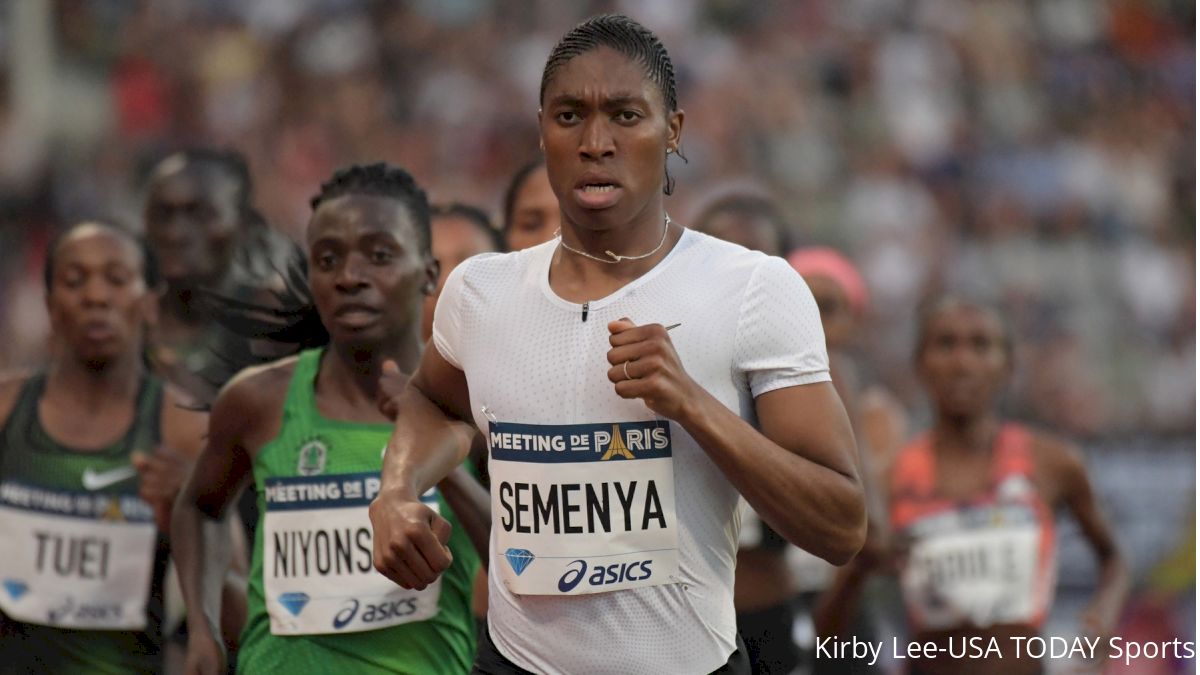Caster Semenya Loses Controversial Legal Case Over IAAF's DSD Restrictions
Caster Semenya Loses Controversial Legal Case Over IAAF's DSD Restrictions
CAS has sided with the IAAF in the landmark case between the governing body and South African Caster Semenya over gender restrictions in track and field.

On Wednesday, two-time Olympic 800m champion Caster Semenya of South Africa lost her legal battle against the IAAF— which enacted a rule last year barring female athletes like Semenya with differences in sexual development (DSD) from competing with their naturally occurring elevated testosterone— and will now have to take hormone suppressants or compete in events outside of the 400m through mile.
The Court of Arbitration of Sport (CAS), which heard Semenya’s appeal against the IAAF with a three judge panel, shockingly sided with track and field’s governing body, forcing out the greatest 800m runner of this generation.
The ruling in favor of the IAAF is a reversal of CAS’ past decision on a similar case, as the court previously suspended the IAAF’s testosterone limit for athletes with hyperandrogenism in 2015.
Semenya’s legal team labeled the new rule “discriminatory” upon its announcement last year, a label that CAS unbelievably did not dispute despite their ruling against her. The summary of the case released on Wednesday includes a chilling line that may forever define the fight for DSD athletes to compete in sport (emphasis mine).
“The Panel found that the DSD Regulations are discriminatory,” the decision read “but the majority of the Panel found that, on the basis of the evidence submitted by the parties, such discrimination is necessary, reasonable and proportionate means of achieving the IAAF’s aim of preserving the integrity of female athletics in the Restricted Events.”
Semenya tweeted this in response to CAS’ ruling:
?♂️ pic.twitter.com/FHmm10npfx
— Caster Semenya (@caster800m) May 1, 2019
The 28-year-old South African has served as the face of this highly-contentious debate over her and her fellow DSD athletes’ place in female sport for nearly a decade, ever since she was subjected to a humiliating gender verification process after her first world title as an 18-year-old in 2009. After nearly a year of ineligibility in the wake of that process, Semenya was forced to take hormone suppressants in order to compete with women starting in 2010.
It wasn’t until CAS’ two-year suspension of the IAAF’s initial hyperandrogegism rules, five years later in 2015, that Semenya was able to compete without restrictions. That all changed on Wednesday as an athlete that has gone undefeated in the 800m for three years has effectively been removed from the event for the foreseeable future.
The IAAF’s rationale for this highly controversial rule was a desire to have an equal playing field for women, which scientifically meant that they would require DSD athletes to medically lower their testosterone below five nmol/L for six months prior to competing in the 400m through mile events. The IAAF’s case hinged on the fact that 99% of females have a range of testosterone between 0.12-1.79 nmol/L, while Semenya and other athletes with DSD more closely resemble male levels between 7.7-29.4 nmol/L.
The landmark ruling by CAS is a response to Semenya’s June 2018 appeal of the IAAF’s controversial rule, announced in April of 2018, which required that women competing in the 400m to mile events to lower their testosterone through medication or compete in other events.
The rule was originally intended to take effect on November 1, 2018, but was delayed multiple times as Semenya mounted a legal challenge against the athletics governing body.
A sliver of hope for Semenya and other DSD athletes in track and field continues to be the highly-criticized scientific reasoning that the IAAF put forward in this case, which CAS acknowledged in the conclusion of their decision.
The Court had “some serious concerns as to the future practical application of these DSD Regulations,” which they noted could change their conclusion “unless constant attention is paid to the fairness of how the Regulations are implemented.”
CAS highlighted three main issues to the current rule in place by the IAAF, which included:
1. Difficulty of constantly maintaining testosterone below the prescribed limit.
2. A lack of “concrete evidence” that DSD athletes in the 1500m and mile have “significant athletic advantage.” The panel wants the IAAF to consider removing these events from the DSD banned list until more evidence is available.
3. Side effects of hormone therapy. Negative reaction to the treatment could prevent athletes from being compliant, which CAS says could alter their conclusion on the “proportionality of the DSD Regulations.”
For the time being, however, this ruling will have a gigantic and immediate effect on the women’s middle distance races.
Without Semenya, or Burundi’s Francine Niyonsaba, another high-profile DSD athlete who finished second behind Semenya in the 800m at the 2016 Olympics and 2017 World Championships, the women’s 800m is an entirely different event. Semenya and Niyonsaba have been the fastest two performers in the event for the last three years, but that will no doubt change as both women will either have to wait out the six month period for hormone therapy or compete in other events.
Semenya has also been highly successful in the 1,500m in recent years, having won the World Championship bronze in the event in 2017.
Semenya has already hinted that she may move to the 5,000m to avoid the IAAF’s restrictions, as she for the first time began competing in the event in 2019. Semenya won the South African title on April 26 in 16:05.